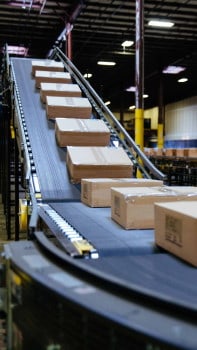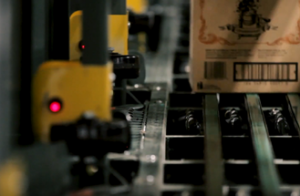Table of Contents
In the rapidly evolving landscape of conveyor systems engineering and warehouse automation, 2025 has marked a significant turning point for conveyor systems engineering. As businesses across industries face mounting pressures from e-commerce growth, labor shortages, and sustainability demands, the need for innovative conveyor solutions has never been more critical. At the forefront of this transformation stands Lafayette Engineering, a company whose pioneering approaches and technological innovations have positioned it as an industry leader.
The Evolution of Conveyor Systems Engineering in 2025
Automation and Intelligence Take Center Stage
The material handling industry in 2025 has been characterized by a dramatic shift toward automation and intelligent systems. According to recent industry reports, the global conveyor system market is projected to reach nearly $13 billion by 2027, representing a compound annual growth rate of 6% from 2022. This growth is primarily driven by the increased adoption of customized automated material handling solutions and the rising demand for handling larger volumes of goods across various industries.
The modern conveyor system has evolved far beyond simple transport mechanisms. Today’s systems integrate advanced technologies such as artificial intelligence, machine learning, and IoT connectivity to create intelligent networks that optimize material flow, predict maintenance needs, and adapt in real-time to changing operational demands.

Key Industry Trends Reshaping Material Handling
Several critical trends have emerged in 2025 that are fundamentally transforming conveyor systems engineering:
- Smart Technologies Integration: The convergence of robotics, automation, and artificial intelligence has become a defining characteristic of modern material handling operations. These technologies automate manual processes involving data and decision-making, optimizing everything from maintenance scheduling to energy usage patterns.
- Modular and Flexible Design: As companies seek to maximize existing facility footprints rather than expanding physically, modular conveyor systems that can be easily reconfigured or expanded have become essential. This flexibility allows operations to adapt quickly to changing market demands without significant infrastructure investments.
- Sustainability and Electrification: Environmental considerations have driven a shift toward more energy-efficient conveyor technologies. Legacy systems that run continuously are being replaced with alternatives that operate on-demand, significantly reducing energy consumption and operational costs.
- Enhanced Human-Machine Collaboration: Rather than replacing human workers entirely, modern conveyor systems are designed to work alongside them, handling repetitive, dangerous, or physically demanding tasks while allowing human workers to focus on more complex and rewarding activities.
- Advanced Data Analytics: Conveyor systems now generate valuable operational data that can be analyzed to identify inefficiencies, predict failures, and continuously optimize performance.
Lafayette Engineering: Leading Through Innovation
Founded in 1989 and headquartered in Danville, Kentucky, Lafayette Engineering has established itself as a distinguished leader in conveyor systems engineering, particularly in the design and installation of controls for high-speed case sortation. What sets Lafayette apart is its unique combination of technical capabilities typically associated with large engineering firms and the flexibility, adaptability, and personalized service characteristic of smaller companies.
The LMS: A Game-Changing Innovation
Lafayette Engineering’s commitment to innovation is perhaps best exemplified by the Lafayette Magnetic Sortation (LMS) system, introduced in 2022. This patented technology represents a significant departure from conventional sortation methods by utilizing electromagnetic technology through multiple magnets.
Unlike traditional divert switches, the LMS system has no moving components, eliminating common issues such as noise and mechanical wear. With speed capabilities up to 725 feet per minute, it is specifically designed for high-speed sortation applications. The system can be integrated into new conveyor installations or, with minor adjustments, serve as a drop-in replacement for existing Hytrol sortation systems.
The LMS system exemplifies Lafayette’s approach to problem-solving: identifying common industry challenges and developing innovative, efficient solutions that enhance performance while reducing operational complications.
Coast-to-Coast Expansion and Service Excellence
Lafayette Engineering’s growth trajectory has been impressive, evolving from a small controls company to a nationwide presence with offices in key locations, including New Jersey, Los Angeles, and Atlanta. This expansion strategy reflects the company’s commitment to providing responsive, localized support to clients across the United States.
In 2017, Lafayette Engineering strategically joined forces with Century Conveyor, a material handling system integration specialist with over 30 years of experience. This partnership significantly enhanced Lafayette’s capabilities, allowing it to offer comprehensive solutions from coast to coast while maintaining the personalized service that has become its hallmark.
Comprehensive Solutions for Modern Challenges
Control Systems Excellence
At the core of Lafayette Engineering’s offerings is its expertise in conveyor control systems. The company specializes in designing and implementing sophisticated control architectures that orchestrate the efficient movement of goods throughout facilities. These systems incorporate programmable logic controllers (PLCs), human-machine interfaces (HMIs), variable frequency drives (VFDs), and advanced sensors to create intelligent, responsive conveyor networks.
What distinguishes Lafayette’s control systems is their ability to integrate seamlessly with warehouse management systems (WMS) and other automated equipment, creating a cohesive material handling ecosystem that maximizes operational efficiency.
Warehouse Control Systems
Lafayette’s Warehouse Control Systems (WCS) act as the central nervous system for modern warehouses and distribution centers. These sophisticated software applications direct real-time activities within facilities, ensuring that individual pieces of material handling equipment—including conveyors, sorters, and print-and-apply systems—operate harmoniously to maximize efficiency.
By interfacing with warehouse management systems to obtain routing information for items, Lafayette’s WCS solutions enable precise control over material flow, enhancing throughput and accuracy while reducing operational costs.
Custom Engineering Solutions
Understanding that each operation has unique requirements, Lafayette Engineering emphasizes customized solutions rather than one-size-fits-all approaches. The company’s team of experts collaborates closely with clients to understand their specific challenges and develops tailored systems that address their particular needs and objectives.
This commitment to customization extends to Lafayette’s control panel design and fabrication services. The company designs and assembles control panels that serve as the nerve centers for conveyor systems, ensuring optimal functionality, reliability, and safety.
Meeting the Challenges of 2025 and Beyond
Addressing Labor Shortages Through Automation
One of the most pressing challenges facing industries in 2025 is the persistent shortage of skilled labor. Lafayette Engineering’s automated conveyor solutions directly address this issue by reducing reliance on manual labor for repetitive tasks. By implementing intelligent sorting systems, businesses can maintain or even increase throughput with fewer workers, allowing them to allocate human resources to more complex and value-added activities.
Maximizing Space Utilization
As commercial construction costs continue to rise, simply expanding facilities to accommodate growth has become prohibitively expensive for many businesses. Lafayette Engineering helps clients maximize their existing space through innovative conveyor designs that utilize vertical space effectively and optimize flow patterns to increase capacity without expanding the physical footprint.
Enhancing Energy Efficiency
With operational costs rising across industries, energy efficiency has become a significant concern. Lafayette’s conveyor systems incorporate features such as on-demand operation, regenerative braking, and low-friction components to minimize energy consumption without compromising performance.
Supporting E-Commerce Growth
The explosive growth of e-commerce has fundamentally changed the requirements for material handling systems. Lafayette Engineering has responded by developing sortation systems specifically designed to handle the diverse range of products and packaging types common in e-commerce operations, from individual items to cases, totes, and polybags.
The Future of Conveyor Systems Engineering
Looking ahead, Lafayette Engineering is positioned to lead the continued evolution of conveyor systems engineering. The company’s ongoing investment in research and development, combined with its willingness to embrace emerging technologies such as digital twins and advanced analytics, ensures that it will remain at the forefront of industry innovation.
As sustainability pressures increase and labor challenges persist, Lafayette’s emphasis on energy-efficient, highly automated solutions will become even more valuable to businesses seeking to optimize their material handling operations.
Conclusion
In 2025, conveyor systems engineering has reached a pivotal moment of transformation, driven by technological advancement, changing market demands, and operational challenges. Lafayette Engineering has distinguished itself as a leader in this evolving landscape by combining technical expertise with a customer-centric approach and a commitment to innovation.
From its groundbreaking LMS technology to its comprehensive control system solutions, Lafayette Engineering demonstrates how thoughtfully designed conveyor systems can address the most pressing challenges facing modern material handling operations. As the industry continues to evolve, Lafayette’s blend of technical capability, personalized service, and forward-thinking innovation positions it to remain a driving force in shaping the future of conveyor systems engineering.
Through its nationwide presence, integrated offerings, and dedication to solving real-world problems, Lafayette Engineering exemplifies what leadership means in today’s complex material handling environment—not just delivering equipment, but providing transformative solutions that enhance efficiency, reduce costs, and create sustainable competitive advantages for its clients.



